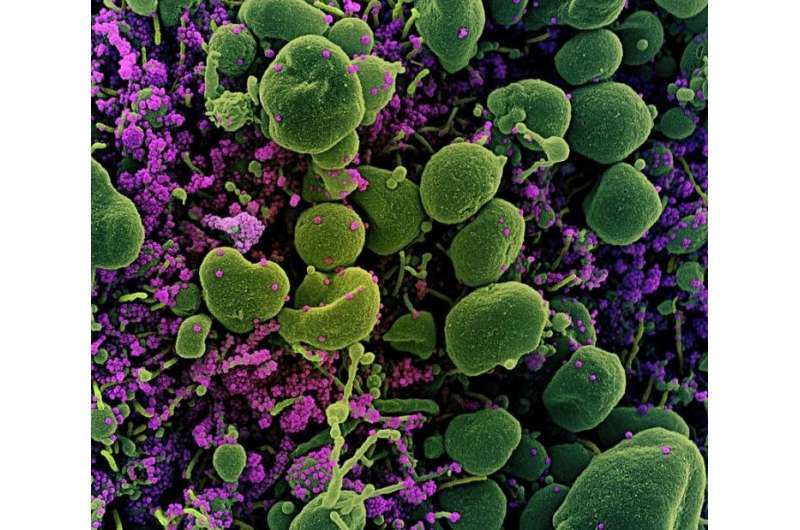Experimental COVID-19 vaccine safe, generates immune response

An investigational vaccine, mRNA-1273, designed to protect against SARS-CoV-2, the virus that causes coronavirus disease 2019 (COVID-19), was generally well tolerated and prompted neutralizing antibody activity in healthy adults, according to interim results published online today in The New England Journal of Medicine. The ongoing Phase 1 trial is supported by the National Institute of Allergy and Infectious Diseases (NIAID), part of the National Institutes of Health. The experimental vaccine is being co-developed by researchers at NIAID and at Moderna, Inc. of Cambridge, Massachusetts. Manufactured by Moderna, mRNA-1273 is designed to induce neutralizing antibodies directed at a portion of the coronavirus "spike" protein, which the virus uses to bind to and enter human cells.
The trial was led by Lisa A. Jackson, M.D., MPH, of Kaiser Permanente Washington Health Research Institute in Seattle, where the first participant received the candidate vaccine on March 16. This interim report details the initial findings from the first 45 participants ages 18 to 55 years enrolled at the study sites in Seattle and at Emory University in Atlanta. Three groups of 15 participants received two intramuscular injections, 28 days apart, of either 25, 100 or 250 micrograms (mcg) of the investigational vaccine. All the participants received one injection; 42 received both scheduled injections.
In April, the trial was expanded to enroll adults older than age 55 years; it now has 120 participants. However, the newly published results cover the 18 to 55-year age group only.
Regarding safety, no serious adverse events were reported. More than half of the participants reported fatigue, headache, chills, myalgia or pain at the injection site. Systemic adverse events were more common following the second vaccination and in those who received the highest vaccine dose. Data on side effects and immune responses at various vaccine dosages informed the doses used or planned for use in the Phase 2 and 3 clinical trials of the investigational vaccine.
The interim analysis includes results of tests measuring levels of vaccine-induced neutralizing activity through day 43 after the second injection. Two doses of vaccine prompted high levels of neutralizing antibody activity that were above the average values seen in convalescent sera obtained from persons with confirmed COVID-19 disease.
A Phase 2 clinical trial of mRNA-1273, sponsored by Moderna, began enrollment in late May. Plans are underway to launch a Phase 3 efficacy trial in July 2020.
More information: Lisa A. Jackson et al, An mRNA Vaccine against SARS-CoV-2—Preliminary Report, New England Journal of Medicine (2020). DOI: 10.1056/NEJMoa2022483





















